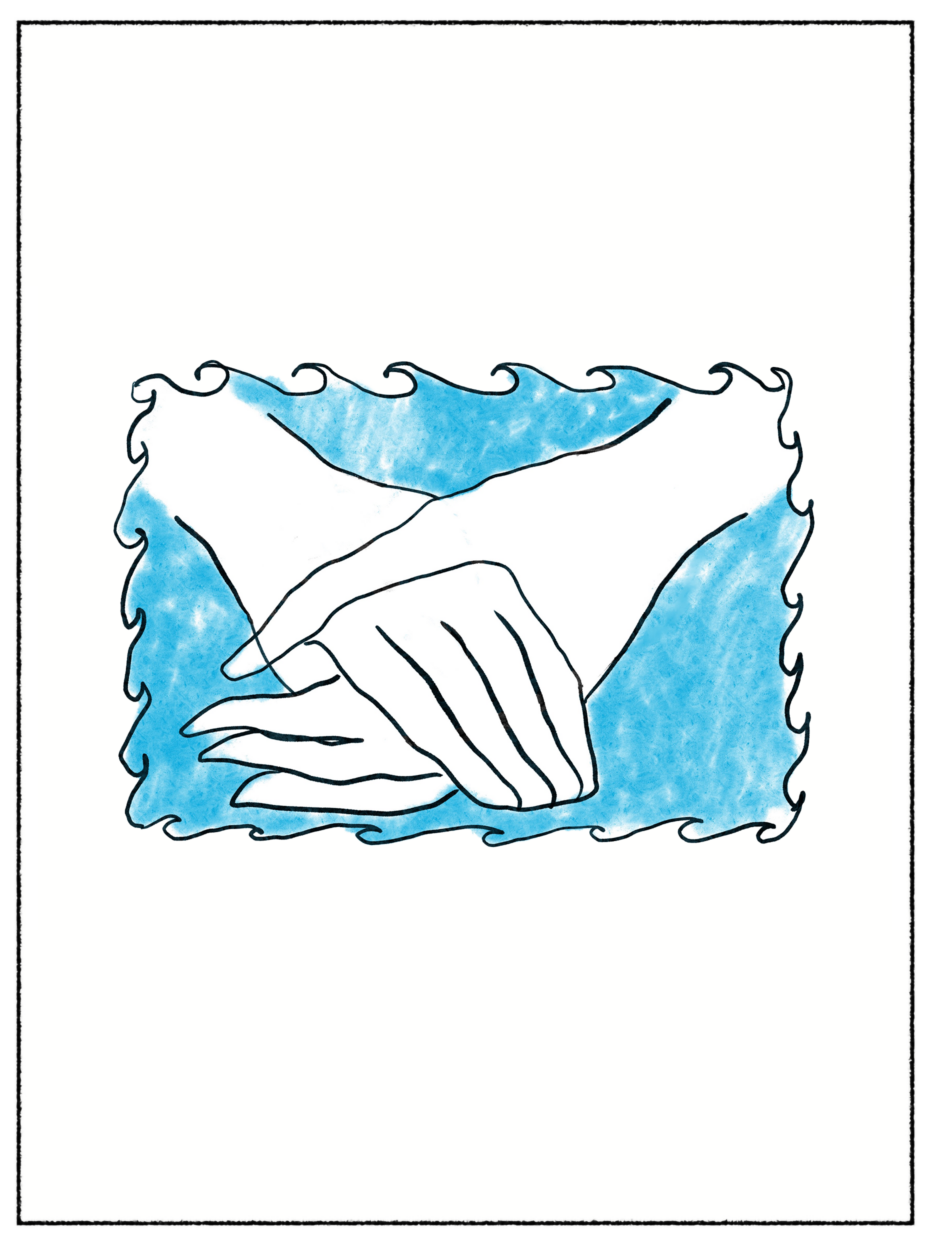
Illustration: Ada Tuncer
Stories
Overcoming Collective Trauma - Part 4
Prof. Dr. Özgür Erdur Baker, a member of the Middle East Technical University’s Department of Psychological Counseling and Guidance Faculty, reflects on grief and psychological empowerment.
Text Seda Yılmaz
Individuals and societies face significant hardships due to climate crisis, natural disasters, wars, and forced migration. As our future becomes increasingly uncertain, we seek ways to be more mentally resilient individually and collectively. Experts from various disciplines guide us through.
Can you elaborate on the processes of collective trauma? How can we both personally and collectively strengthen and build resilience to empower ourselves and those around us?
Not every disaster turns into trauma for individuals. Disasters leave traumatic effects only when coping skills we usually employ in various aspects of our lives prove insufficient. This disaster shattered the fundamental assumptions we hold, such as “I am safe, my loved ones are safe, and this world is a secure place.” The earthquake has disrupted our routines and revealed the vulnerability of both ourselves and our loved ones. That’s why accepting and making sense of this situation is not an easy task. Hence, traumatic stress responses to the disaster manifest themselves as fear, shock, despair, and weakness.
Numerous proactive measures for fortifying both yourself and those in your immediate surroundings exist in navigating through these challenging times. One pivotal strategy involves leveraging your social support network. Consciously prioritize spending time with individuals who bring you joy, understanding, and a sense of significance. Acknowledge that, amid this process, feelings of anger and anxiety may manifest. Be compassionate with yourself—whether you achieve certain things or not. Lastly, indulge in activities that make you feel good, effectively supporting your emotional well-being.
Contending with mass fatalities and losses can leave enduring marks on individuals’ psychological well-being. What kinds of wounds emerge from such experiences, and how can we collectively address and heal them?
The onset of the grieving process varies, and we can comprehend one’s mourning journey through a spectrum of physical, cognitive, behavioral, and emotional aspects. Recognizing that each person’s grieving process is distinct and should be evaluated as such.
In supporting our acquaintances coping with diverse losses, it is pivotal to acknowledge the normalcy of their reactions to grief. Strive to comprehend their experiences, provide a palpable sense of solidarity, and refrain from passing judgment. Avoid expressions that downplay their struggles, like “I’ve heard of worse situations” or “You should be thankful.” Encourage them to articulate their feelings, affirm that their emotions are valid, and convey your readiness to lend an empathetic ear whenever they wish to engage in conversation.
Those who refrain from venturing into the affected areas may grapple with a mix of guilt and the challenge of resuming their everyday routines. What do you suggest for addressing and managing these feelings?
The earthquake’s aftermath triggered a collective desire to extend a helping hand, showcasing the intrinsic interconnectedness within our society. However, earthquakes cast enduring impacts on a broad scale, necessitating a sustained and collaborative effort from each individual. Contributions can manifest in diverse forms, ranging from material and financial aid to disseminating accurate information and guiding affected individuals toward appropriate assistance services. Even seemingly modest gestures, such as asking a simple question like “How are you?” can hold profound importance for those grappling with the aftermath.
Returning to normalcy, post-disaster poses a formidable challenge. As an academic, I find myself wrestling with the difficulties of returning to daily life and fulfilling professional responsibilities. The persistent presence of the earthquake-stricken area in my thoughts adds an extra layer of complexity. However, maintaining daily routines from a trauma perspective isn’t without merit. These routines provide a semblance of security and control, fostering a sense of well-being within ourselves and enabling more effective support for those in our community seeking assistance.
Is it selfish to consider self-care in times of crisis?
During such crises, reflecting on our self-care can be likened to the emergency procedures on airplanes. When we board a plane, the attendants instruct us to secure the oxygen mask on ourselves before assisting our children. What does this signify? It emphasizes that without ensuring our own well-being, we cannot extend a helping hand to others in need. In times of disaster, prioritizing self-care is not an act of selfishness; rather, it is a necessity.





